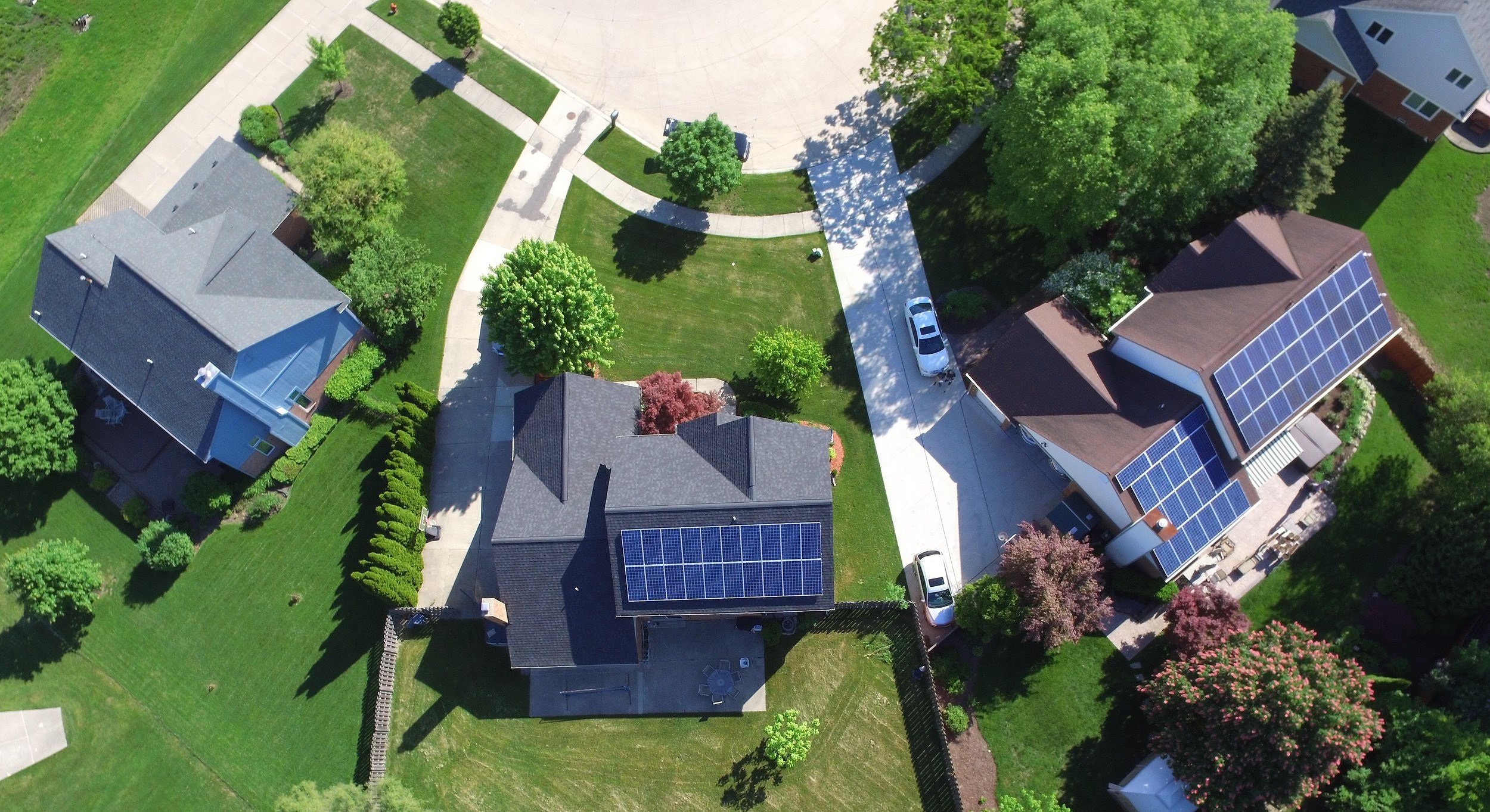With Michigan’s unpredictable weather, homeowners and businesses considering solar energy systems often wonder if solar panels only work when the sun is shining brightly. The good news is, panels are designed to capture energy from a variety of light conditions, making them effective even on cloudy or snowy days.
Key Points
- Solar panels generate electricity from daylight, not just direct rays.
- They remain effective in cloudy, snowy, foggy, and indirect light conditions – although, they may be less efficient during those times.
- Michigan’s climate supports cost-effective solar installations year-round, even with seasonal weather changes.
- Shade, orientation, and placement impact performance, but modern technology minimizes losses.
- With proper design, solar delivers savings, reliability, and environmental benefits across Michigan homes and businesses.
Get your solar system started today!
Strawberry Solar's expert system designers and installers know Michigan weather and sun patterns to maximize energy production.
How Solar Panels Work in Various Sunlight Conditions
Solar panels convert light into electricity through a process called the photovoltaic effect. When sunlight, direct or indirect, hits the cells within the solar panels, it activates electrons and produces an electric current.
Unlike what many believe, panels don’t need heat – just light. That’s why they can still generate power in a variety of conditions.
Do Solar Panels Work Without Direct Sunlight?
Yes. Even when the sky is overcast, solar panels continue to work. Solar systems are designed to account for variable conditions. While direct sunlight provides the strongest energy production efficiency, diffuse or scattered light on cloudy days still contributes to electricity production.
How Much Sunlight Do Solar Panels Need to Be Cost-Effective?
Solar panels don’t require constant sunshine to pay off. What matters is the total amount of peak sun hours over the year. Michigan averages 3.5–4.5 peak sun hours per day, which is more than enough for a strong return on investment with most solar energy systems. Many successful solar installations in the state prove that year-round production makes solar worthwhile.
Systems are sized for annual performance, so even days with low production balance out over time. This means reduced utility bills and reliable long-term value when systems are designed strategically by experts in the area.
Let's talk solar installation for your home or business
Strawberry Solar's expert system designers and installers know Michigan weather and sun patterns to maximize energy production.
Weather and Seasonal Impacts on Solar Performance
Solar Energy Generation on Cloudy Days
Panels can still generate 10–25% of their typical output under heavy clouds. Diffuse light penetrates cloud cover, keeping production steady enough to make a difference.
Rainy Conditions Impacting Solar Panels
Rain temporarily lowers output but also cleans panels naturally. Cleaner panels capture more sunlight, improving efficiency over time.
Snow and Winter Conditions with Solar Systems
Michigan winters don’t stop solar. Panels are installed at angles that help snow slide off, and even when covered, reflection from surrounding snow can boost light capture. Cold temperatures also improve panel efficiency.
Solar Panels in Extreme Heat
Contrary to popular belief, extreme heat reduces efficiency. In fact, panel output can drop by 10–25% in very high temperatures. Cooler climates like Michigan in Spring and Fall are actually ideal for solar panels.
Solar Energy Production on Foggy and Low-Light Days
Even in fog, panels produce some electricity. While output is reduced, they continue to contribute to your home’s energy supply. Performance can vary depending on the density of the fog, with lighter fogs allowing more diffuse light to reach the panels. This means production doesn’t stop, but rather dips until clearer conditions return.
Solar Panel Location and Placement
Shade Considerations
Shade from trees, chimneys, or neighboring buildings can reduce output. Modern systems use microinverters or power optimizers to ensure shaded panels don’t drag down the performance of the entire array.
Orientation and Roof Direction
South-facing panels typically generate the most energy in Michigan. East- and west-facing roofs can still provide excellent production, peaking earlier or later in the day. North-facing roofs are less efficient, but they may be a viable option for some buildings if space is limited, depending on system design.
Ground Mount Options
For properties where roofs are shaded or unsuitable, ground-mounted systems allow for optimal orientation and tilt. They can be installed to maximize exposure and provide easy access for maintenance.
Solar Power Beyond Daylight Hours
Solar Energy Production From Moonlight At Night
Solar panels stop generating when the sun goes down, since the photovoltaic effect relies on sunlight. While moonlight does provide a trace amount of illumination, it is far too weak to generate meaningful electricity, so storage or grid power remains essential.
To keep homes powered through the night, many Michigan homeowners pair their systems with battery storage solutions. These batteries store excess solar energy produced during the day and release it after dark, reducing reliance on the grid and improving energy independence. For those without storage, a grid connection ensures continuous electricity, but batteries add extra resilience during outages.
Artificial Light for Solar Power
Solar panels can technically react to artificial lighting such as street lamps or indoor lights, but the intensity is far too low to produce usable energy. This means artificial light should not be considered a source of power for your solar system. Instead, reliable after-dark performance comes from battery storage and the grid connection.
Maximizing Solar Panel Efficiency in Michigan
- Keep panels clean and clear of debris (rain and snow help naturally).
- Work with experienced installers to design your solar system in a way that optimizes tilt and orientation for maximum production.
- Add battery storage for energy independence and avoiding reliance on the grid after dark.
- Use monitoring systems to track production and performance.
Why Choose Strawberry Solar
Strawberry Solar brings decades of expertise installing solar in Michigan’s unique climate conditions. The efficiency and production of a solar system depends heavily on the expertise brought to the system design and consideration for Michigan’s weather and sunlight patterns.
Our team delivers customized designs for maximum output whether rooftop or ground mounted, with a strong commitment to quality equipment and workmanship backed by reliable warranties. As a local provider, we offer ongoing support, maintenance, and monitoring, along with guidance on solar incentives, financing, and ROI to ensure you receive the best long-term value.
Get a Free Solar Quote

